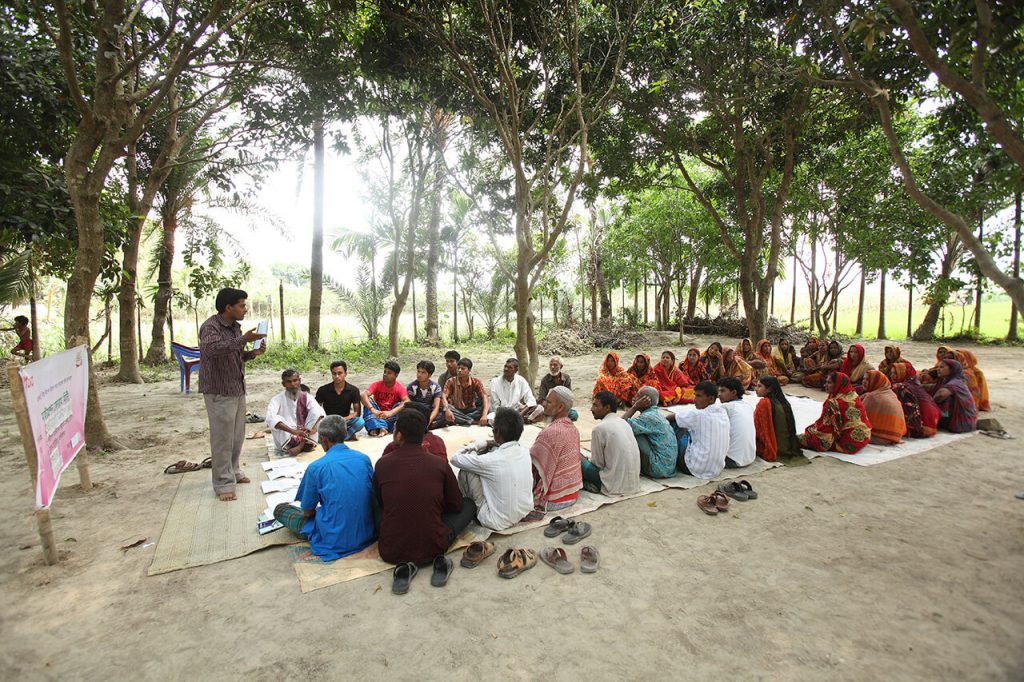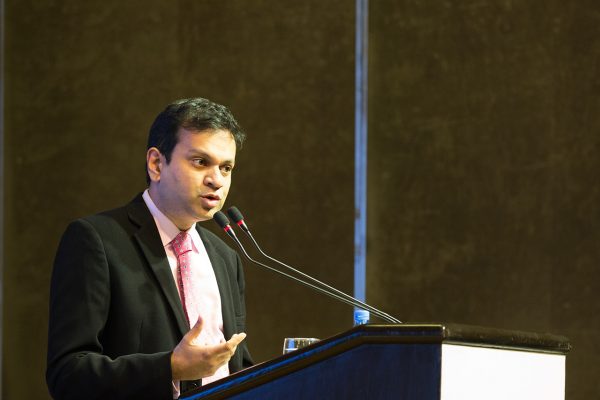Migrants everywhere deserve dignity
Reading Time: 3 minutes
On the month of victory and International Migrants Day, we stand by our migrants working hard for a better life.
Kawsar is from Chandpur. He was determined to change his family’s financial condition. He took the decision to migrate abroad despite knowing well that the journey ahead as a labour worker was going to be hard. He learned that a chain restaurant in Saudi Arabia was hiring waiters through BRAC’s Migration Support Enterprise.
The job required good English and hospitality skills. Kawsar had work experience but lacked the language skills. He found encouragement at BRAC’s language training centre, and gathered the tools to successfully land the job. Now, Kawsar regularly sends money to his family.
Like Kawsar, every hour, 84 migrant workers leave Bangladesh to change their destinies. According to Ministry of Expatriate Welfare and Overseas Employment and Bureau of Manpower Employment and Training (BMET), around 12 million people – of which 0.75 million are women – have been working abroad as labour migrants, from 1976 to October of 2018.
These migrants send remittance of an estimated USD 15 billion every year, which constitutes about 8% of our GDP. Thanks to the labour migrants, Bangladesh now has a foreign reserve of more than USD 30 billion. However, the very people who make an immense contribution to the economic landscape of the country, do not get the respect and dignity that they deserve.

A common allegation by migrant workers is that whenever they visit embassies in times of difficulty, they often face negligence. They face harassment at the airport on returning to the country after long periods of time.
The truth is, migrants give plenty to the country and receive nothing in return. This year’s slogan for the International Migrants Day is “dignity and justice are the rights of migrants” – which begs the question: How long do they have to wait until they get their due respect?
Bangladesh has the highest migration cost in the world. Middlemen in various stages of the migration process charge hefty amounts. Recruiting agencies, inaccurate information regarding jobs, purchasing and selling of visas at high prices, availing government permissions – all these and more make every step difficult for migrant workers.
It does not end there. Once a migrant reaches their destination, they face a different kind of harassment – from inhumane workload and dire living situations, to exploitation and abuse.
The recent years have seen the worst in the way Bangladeshi labour migrants were treated. While many people are leaving for work abroad, many dead bodies are also sent back. We never see them coming out, as the body bags are taken out through the cargo gates. According to the Wage Earners Welfare Board, approximately 36,000 dead bodies have come back to Bangladesh in the last decade. The major cause of death is allegedly heart attack and stroke, even though a large proportion of those deceased are between the ages of 28 to 30.
The government has information of the labour migrants, but there isn’t any proper data on the number of returnees. Every year, approximately 50,000 people return. The memory of the anguish faced by female returnees from Saudi Arabia is still fresh in our minds.
The Bangladeshi government has taken various positive initiatives, but there is still a long way to go until the desired results can be seen. People need to understand that all migrants have to travel using regular channels and with right skills. Additionally, newer destinations must be explored.
The government and embassies must understand that migrants are not money-making machines – they are human beings first and foremost. That is why “dignity and justice are the rights of migrants” is an accurate and timely slogan for this year. If we do not respect our own citizens, no one else will. If we honour them today, others will follow tomorrow.
We must extend our respect and gratitude to the 12 million Bangladeshi migrants all year round – not just today. On the month of victory and International Migrants Day, we stand by migrants working hard for a better life. They are the sons and daughters of Bangladesh, then why are they left alone to suffer?
Shariful Hasan is a former senior reporter of Prothom Alo and the current programme head of BRAC’s migration programme.





